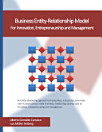Experimentation Matters: Unlocking the Potential of New Technologies for Innovation
Stefan H. Thomke
আগ ২০০৩ · Harvard Business Press
ইবুক
320
পৃষ্ঠা
reportমূল্যাংকন আৰু পৰ্যালোচনা সত্যাপন কৰা হোৱা নাই অধিক জানক
এই ইবুকখনৰ বিষয়ে
Every company's ability to innovate depends on a process of experimentation whereby new products and services are created and existing ones improved. But the cost of experimentation is limiting. New technologies--including computer modeling and simulation--promise to lift that constraint by changing the economics of experimentation. They amplify the impact of learning, creating the potential for higher R&D performance and innovation and new ways of creating value for customers. Stefan H. Thomke argues that to unlock such potential, companies must not only understand the power of new technologies for experimentation, but also fundamentally change their processes, organization, and management of innovation. He shows why experimentation is so critical to innovation, explains the impact of new technologies, and outlines what managers must do to integrate them successfully.
লিখকৰ বিষয়ে
Stefan Thomke is the William Barclay Harding Professor of Business Administration at Harvard Business School. He has worked with global firms on product, process, and technology development, organizational design and change, and strategy. He is a widely published author with articles in leading journals such as California Management Review, Harvard Business Review, Scientific American, and many others. He is also author of the book Managing Product and Service Development (McGraw-Hill/Irwin, 2006). He is the recipient of numerous awards, including the Apgar Award for Innovation in Teaching at HBS, and has been an HBR McKinsey Award Finalist.
এই ইবুকখনক মূল্যাংকন কৰক
আমাক আপোনাৰ মতামত জনাওক।
পঢ়াৰ নির্দেশাৱলী
স্মাৰ্টফ’ন আৰু টেবলেট
Android আৰু iPad/iPhoneৰ বাবে Google Play Books এপটো ইনষ্টল কৰক। ই স্বয়ংক্রিয়ভাৱে আপোনাৰ একাউণ্টৰ সৈতে ছিংক হয় আৰু আপুনি য'তে নাথাকক ত'তেই কোনো অডিঅ'বুক অনলাইন বা অফলাইনত শুনিবলৈ সুবিধা দিয়ে।
লেপটপ আৰু কম্পিউটাৰ
আপুনি কম্পিউটাৰৰ ৱেব ব্রাউজাৰ ব্যৱহাৰ কৰি Google Playত কিনা অডিঅ'বুকসমূহ শুনিব পাৰে।
ই-ৰীডাৰ আৰু অন্য ডিভাইচ
Kobo eReadersৰ দৰে ই-চিয়াঁহীৰ ডিভাইচসমূহত পঢ়িবলৈ, আপুনি এটা ফাইল ডাউনল’ড কৰি সেইটো আপোনাৰ ডিভাইচলৈ স্থানান্তৰণ কৰিব লাগিব। সমৰ্থিত ই-ৰিডাৰলৈ ফাইলটো কেনেকৈ স্থানান্তৰ কৰিব জানিবলৈ সহায় কেন্দ্ৰত থকা সবিশেষ নিৰ্দেশাৱলী চাওক।




